
15 minute read
Pastor’s Perspective
by Pastor Daniel Gillenwater, The Church at Eastern Oaks
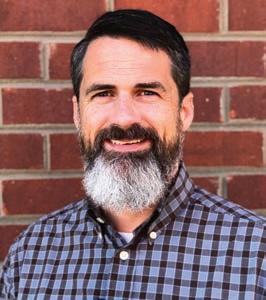
More Than a Feeling
In the Fellowship Hall of the church I pastor, we have a bulletin board where we post various ministry rotations and volunteer assignments. This board is always decorated, and the theme changes every month. With the arrival of February, our bulletin board will be decorated, as I’m sure so many others will, with the theme of love. Everything will be done in red and pink. There will be hearts… there’s even a picture of a cute brown teddy bear dressed like cupid. If that doesn’t scream “LOVE,” then I don’t know what does!
As everyone knows, February is the month we celebrate Valentine’s Day. While there is nothing wrong with a holiday that celebrates romantic love, I believe we live in a society that, by and large, has no idea what true love is. Most people define love as a feeling. Love is an emotion, and as an emotion, it comes and goes. We need a better definition of love. Love is so much more than a feeling. Thankfully, God’s Word gives us the truest and best definition of love.
In the fourth chapter of his first epistle, the Apostle John has quite a bit to say about love. Specifically, look at how he defines love in 1 John 4:10, “In this is love, not that we have loved God but that he loved us and sent his Son to be the propitiation for our sins.” Biblically, love is defined NOT as a feeling or an emotion. Love is defined as the selfless act of God sending His Son to die on the cross for our sins. That is what love looks like. Utilizing this biblical definition of love, let me make two important points that will help us love others better.
First, love is a choice. God did not have to send His Son to die for our sins. He chose to. Furthermore, we know love is a choice when we read about the two Great Commandments. In Matthew 22:36, Jesus is asked, “What is the great commandment in the law?” He responds in the following three verses by saying, “You shall love the Lord your God with all your heart and with all your soul and with all your mind. This is the great and first commandment. And a second is like it: You shall love your neighbor as yourself.” The Lord would not command us to love if we could not do so. Therefore, we clearly see that love is choice. With the Lord’s help, we can choose to love Him and love others, and this is exactly what we should do. We should choose love. Are you married? Choose to love your spouse. Are you a parent? Choose to love your children. Do you have a job? Friends? Choose to love your neighbor as yourself. This is something you can do whether you “feel like it” or not.
Second, love is an action. God dem onstrated His love not with mere words alone but by sending His Son to die on the cross. This was an action. This was the most important action in the history of the world. This one action made forgiveness and salvation possible for anyone who will put their faith in Jesus. Therefore, if love is an action, I need to demonstrate love to those in my life. While saying “I love you” is important, it’s not enough. Love is an action. Love needs to be expressed through action. Yes, tell those in your life that you love them, but don’t stop there. Show them with your actions that you love them.
This February, our culture will celebrate love. However, they too often celebrate nothing more than a feeling. Love is so much more. Celebrate true love this February. Choose to act in love to those in your life. Most importantly, share the greatest love story ever told. Share the Gospel.


Always Longing
by Stephen Morefield
We can tell a lot about ourselves by what we long for, by what we desire, by what we dream about, by what consumes our thoughts when we lie in the quiet darkness of night. I don’t think I’m wrong in suggesting that few of us spend much time dreaming about Heaven. Most of our longings extend little farther than what we can see, have, and experience here on earth. And yet the consistent message of the Bible is that there are treasures and blessings beyond this earth that are so beautiful, so wonderful, so desirable, that the best of earth’s joys will pale by comparison.
This longing is the subject of Stephen Morefield’s book Always Longing: Discovering the Joy of Heaven. He, like so many of us, has always known that Heaven is good, but has still preferred to focus his thoughts and desires on this world and this life. He has always known that Heaven is a wonderful place, but he still didn’t want to go there because he had other plans, other dreams, other things he wanted to accomplish. “Sports, college, ministry, marriage, kids—those sorts of things. I had too much to do to want to go to Heaven. I also had a healthy fear of death. Who wants to die? Not me. No thanks.”
But as time went on he came to understand some very good news. “I was completely wrong about Heaven, and you probably are too.” He was wrong in what he understood about Heaven and wrong about wanting to be here more than he wanted to be there. He realized that we live best when Heaven consumes our thoughts and fills our desires. We live best when we live with a longing to be absent from the body and home with the Lord.
He begins the book by asking simply, does Heaven matter? He follows Randy Alcorn in showing that we were made for both a person and a place, and “that person, experienced in the presence of that place, will meet every single need we could ever have. Complete satisfaction is possible. All of our longings tell us it must be. But only in this divine gift of a person and a place will we ever find it.” The second chapter faces the reality that we must all die and considers what happens after death. He balances the horror of death with the beauty of finally being in the presence of God.
We would be lying if we said that this world is only full of sorrows and woes, for that is not the case. We experience many blessings here and enjoy many pleasures. And it is good and honoring to God when we embrace them. Yet these pleasures are not meant to captivate us, but to point us to the fulfillment of our longings—to the presence of that person in that place. And this book does a commendable job of directing our longings in just that way.
And Then There Was One
by Mary Echols

Mary Echols lost her husband very suddenly and unexpectedly after he suf fered a heart attack. And in the aftermath of her loss she was desperate to find out how much of her experience of loss was typical. “I began looking for something I could read that would allow me into some one else’s journey and help me to see that the little things I was stressing over were okay,” she says. “I needed to know that someone else couldn’t change the sheets, that someone else washed her spouse’s clothes with hers, that someone else would open his bathroom drawer that held hairbrush, aftershave, cologne, and breathe in his scent. I needed to have these things validated!” Because she couldn’t find anything, she decided to journal her journey and the result is And Then There Was One: An Emotionally Raw Journey Through Spousal Grief.
The book’s format is what I have found typical for a book that has been written in a time of deep grief in that it is comprised of short thoughts that are often very urgent and very poignant. Some of it is written as if to her husband, some as if to herself, and some as if to an unknown reader like you and me. She recounts returning home to find her husband slumped in his chair and tells, how though she was a seasoned RN, nothing had prepared her for the moment. She tells about the early hours in which, as if in a terrible dream, she went through the motions of calling her children, and the early days in which she cried herself to sleep in a bed that was now cold and empty.
The day comes when she realizes she may be tempted to turn some of her husband’s things in a shrine and resists that temptation. The day comes when she realizes she doesn’t mind making decisions for just one person instead of two and living according to the plan and schedule of only herself. By the end of the book she has emerged from the worst of her sorrows. She may not be healed, but she is healing. She may not be over her sorrows (as if anyone ever is) but she is once again getting on with life.
In my assessment, this book has two notable strengths. The first is related to Echols’s realness. She simply lets us into her journey as she goes through it and is honest about her joys and sorrows, her fears and doubts, her submission and her anger. The second is related to her faith. She writes as a Christian who mourns, but not without hope, and who grieves, but not without a sense of God’s will being expressed even in something as tragic as death. This is a beautiful, hopeful little book and one I’m glad to recommend.
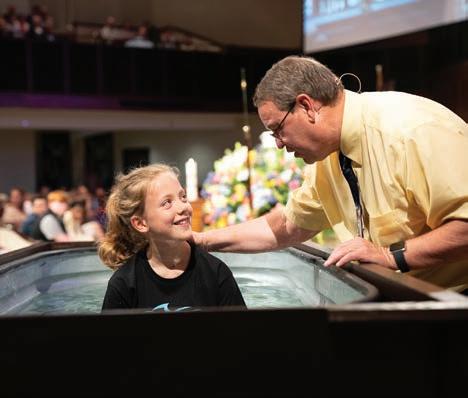
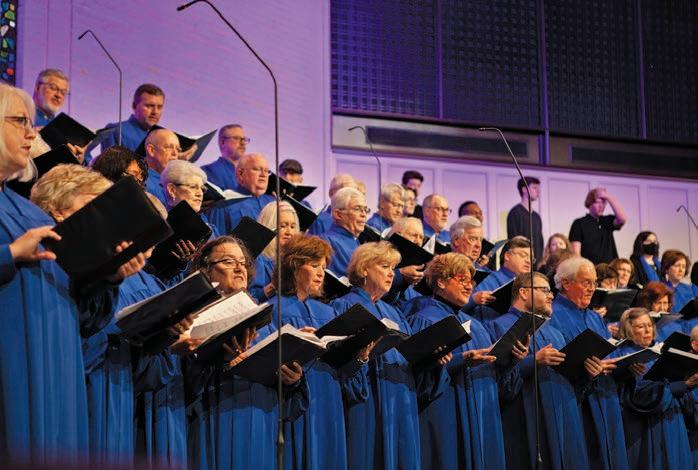

RRC: Who or what helped you understand the person of Jesus Christ?
KH: I attended Blue Lake Camp in Andalusia, Alabama, during the summer of my 5th-grade year. My camp counselor, Freida Daughtry Gatewood, shared the Gospel with me, and I prayed to receive Christ.
RRC: How did you keep your two daughters, Francie (24) and Mary Phyfer (22), involved in mission work/activities during their youth?
KH: Our church has a huge heart for missions, so it was easy for us to get involved. When the girls were around five and seven, we started serving at Bell Street, a weekly service to children and teenagers. A few years later, we went to help with the children’s ministry at Frazer’s Asbury Campus. We took other mission trips as a family, and when they were teenagers, they went on mission trips with the youth group. They also were in a mission program called Christian Youth in Action (CYIA), a ministry of Child Evangelism Fellowship. CYIA students learn to share Bible stories with the Gospel message with children. These children are then extended an invitation to receive Christ as Lord and Savior, and many of them do.
RRC: How has your trust and faith in God sustained you during difficult times?
KH: The truth is I would not have made it without Jesus Christ. He has given me stability in an unstable world. His Word is a solid rock on which you can build your life.
RRC: For parents who desire their children to know God but are unsure how to train them, what information can you share?
KH: As your life transforms, they will see and experience that. Share with your children what you are learning, and spend time praying and asking the Lord to help you understand His Word and apply it to your life. Get your family involved in a Bible-believing church. Read a children’s Bible with them regularly. As you walk through life together, look for opportunities to share your faith with them. When your children are arguing and need to forgive each other, talk to them about how much Christ has forgiven us and how He wants us to forgive each other. Be intentional with your teaching opportunities, and don’t be afraid to talk with them about God. If you have questions, please contact cefstateal@gmail.com.
RRC: Your work with Child Evangelism Fellowship has been long-term. How has it impacted your life?
KH: I have seen the Lord open hearts and minds and draw children into a relationship with Himself. I have seen Him bring together people and events to help further His Kingdom. It has amazed and encouraged me!
RRC: Through your journey of becoming a counselor, is there anything you wish you knew prior and why?
KH: The journey to becoming a biblical counselor was filled with studying, learn- ing, praying, and growing. I’ve learned that because people go through varied circumstances/struggles, each case for me still consists of all those things.
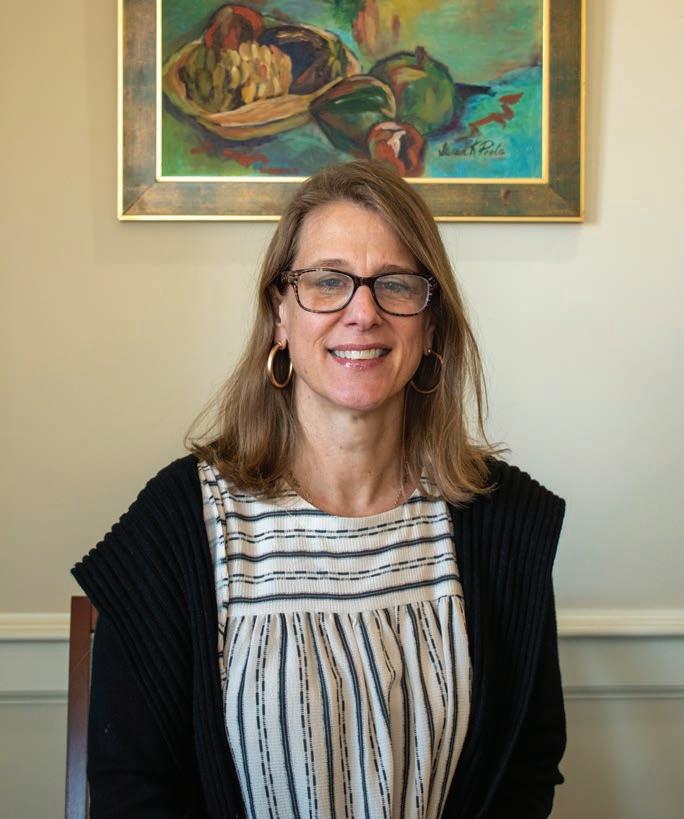
RRC: Please share why you’re passionate about people having a faith community inside and outside of church and not being isolated.
KH: A life-or-death situation is how serious I believe it can be. God created us for the community. We need other believers in our lives for accountability, wise and godly counsel, and so the gifts God has placed in each of us can help strengthen the other. When people are isolated, they are more anxious, fearful, and depressed. I find myself saying a lot to people, “Do you have a church home? Do you have a church in mind you’d like to try? If not, please come to mine.” Once someone finds a church home, they need to be involved in small groups where they can grow spiritually, know others, and be known.
RRC: Does your community of faith always stand behind you in a time of need? How?
KH: The Christian community has been the hands and feet of Christ in my life on so many occasions. When I was so grief-stricken I couldn’t stand, they helped nurture me back to life through prayers, letters, cards, books, food, time, acts of kindness, help with my children, Bible studies... just so many things.
RRC: Primarily, you work with women and teens. How does your faith handle societal issues such as premarital sex, teen pregnancy, and divorce?
KH: My faith tells me that God loves people and that premarital sex, teen pregnancy, and divorce happen because we live in a fallen world. My faith in Jesus Christ says there is nothing that He cannot redeem. There is no circumstance He can’t use for our good and His glory. If you read the Scriptures, what you will find is that our highest good in this life is to be transformed into the likeness of Christ.
IN ADDITION TO OUR POWERFUL RADIO BROADCAST, Faith Radio is also involved in these areas of Christian media: Podcasting,
Making It Easy To Know The Bible
His

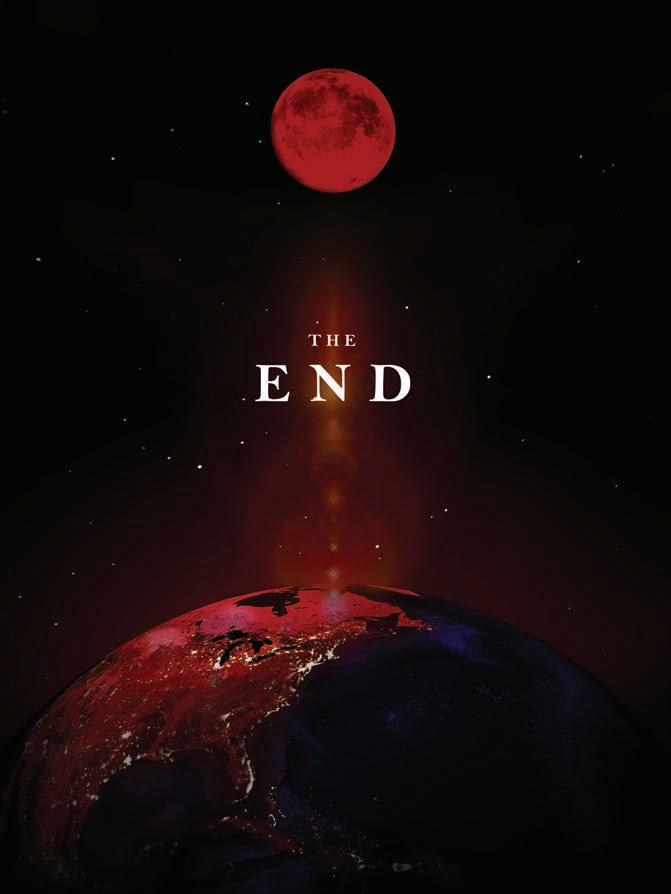
Jo Hancock on Saturday, February 11, from until noon. Registration may be made online at hisvessel.org.
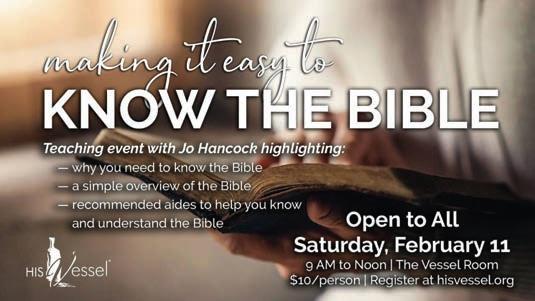
Compassion International presents Casting Crowns Healing Tour
Compassion International presents Casting Crowns The Healing Tour: An Awakening FNDN Event on Saturday, March 11, beginning at 7:00 pm. This event will be held at the Montgomery Performing

• How much you’ll need to retire
• If you are on track for your retirement goals


• Which IRA is right for your retirement needs – Roth or traditional
• The importance of asset allocation and how it can help as you work toward your long-term goals
It’s more than just money. Investing is about realizing the possibilities of your future.
Steven Curtis Chapman at MPAC

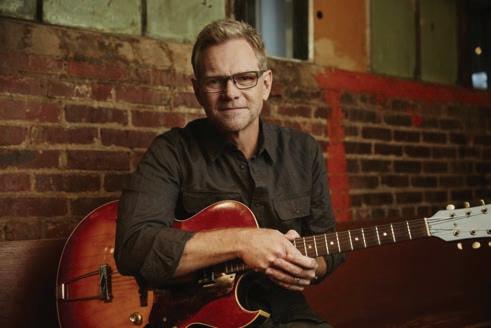
Thursday, March 30, 7:00 pm

Steven Curtis Chapman is bringing brand new music on his upcoming tour, “Still”. Join us this Spring as SCC encourages you through his music and inspires you through his stories. But don’t worry, in addition to new music he will “still” be playing some of his well-known favorites you’ve enjoyed over the years! For tickets, visit www.mpaconline.org.
Frazer Church Welcomes Chris Tomlin and His Stories of Worship
Frazer Church, 6000 Atlanta Highway, is excited to host Chris Tomlin and his STORIES OF WORSHIP tour! Tickets for the March 25, concert are on sale at christomlin.com. Enter the code ALWAYS for $5 off your ticket. For questions about tickets or seating, please contact kaitlin.harper@premierproductions.com.


Whether our work is done at home or out in the community, as volunteers or for a paycheck, an essential question has to do with how faith relates to our work.
Currently, there is a global, emotional crisis related to work. Most people in the world deeply dislike their work. One Gallup poll revealed that more than anything, what the world wants is a good job—more than food, shelter, safety and peace—a good job. And yet, as another poll revealed, a full 87% of workers are disengaged from and miserable in their jobs.
In the movie, Office Space, the main character, Peter, visits a hypnotherapist to help him with his lack of motivation and disdain toward his mid-level job. In that meeting, he says the following:
So I was sitting in my cubicle today and I realized, ever since I started working, every single day of my life has been worse than the day before it. So that means that every single day that you see me, that’s the worst day of my life…I’d say in a given week I probably only do about fifteen minutes of real, actual work.
Though intended to get a laugh, these words hit home for a lot of us. Our work doesn’t feel meaningful but because our perspective about work lacks a biblical imagination. Dorothy Sayers says that the church is largely at fault for this crisis. According to Ms.
Sayers, rather than foster a robust vocational imagination in its people, the church has allowed work and religion to become separate departments.
Assuming she is correct, what is the way forward?
The Reason For Work
We need to work because work is in our blood. As carriers of the divine imprint, as bearers of the image of God, we are by nature vocational beings.
Have you ever considered that the very first thing God reveals about himself in the Bible is that he, God, is a worker? “In the beginning, God created…” That’s right. God, the Maker of all things, put his hands in the dirt. He started by creating water, earth and sky, all designed as hospitable spaces for life. Then came the plants, the land creatures, the birds, the fish, and they the crown of his creation—man and woman. Then, at the end of his work, God looked at everything he had made and called it very good (Genesis 1:1-31).
But work did not stop with God. After creating everything, God put Adam and Eve in his garden and told them to work it and tend to it, to cultivate it…to make culture as they exercise dominion on God’s behalf over the world God had made (Genesis 2:15).
My former mentor and colleague Tim Keller is fond of saying that history began in a garden and ends in a city. In Genesis, the first chapters of history past, everything energy, imagination and resources to leave God’s world better than we found it. If you’ve ever wondered why children instinctively “get to work” each morning,
Consider janitorial work. Several years ago, I met a man named Joe. In the course of getting to know each other, Joe asked me the standard get-to-know-you-question: “So, what do you do?” As a minister, before I answer that question I prepare for one of two standard reactions: excitement followed by a long conversation about God and church, that causes people to either trust or distrust turned to him and I asked him what he did for work, he responded in a way I will never

What? Just? He just pushes a broom? Who in the world told him that he should say or think “just” with regard to his work?
I thought to myself, “What would the world be like without janitors, or for that matter caregivers, shelf-stockers, repairmen and women, mothers and fathers, seamstresses, bus boys, police officers, construction workers, mechanics and others who, though their jobs may be lower in profile and pay, are such high impact and importance that the whole world could not move forward, and in many cases would also fall apart, without them?”
And what about the dignity of Joe and his essential work? Regarding Joe’s work and all work, there are two statements incorrectly attributed to Martin Luther, but that are deeply important statements nonetheless:
The maid who sweeps her kitchen is doing the will of God just as much as the monk who prays— not because she may sing a Christian hymn as she sweeps but because God loves clean floors…[and]…The Christian shoemaker does his Christian duty not by putting little crosses on the shoes, but by making good shoes, because God is interested in good craftsmanship.
The Groan (and Future) of Work
We’ve already seen that God, after he completed his work of creation, looked at what he had made and said it was very good. God looked at his work and celebrated. He was satisfied. And because God put his image in us, we, too are wired to take pride in our work.

But something went wrong along the way. Unlike God in his work of creation, our work fails us, and we fail our work. Due to lack of motivation and skill and capacity, we struggle to produce the kind of work that will truly satisfy us. Even with our best work, the enjoyment gets ruined when someone or something comes along and ruins it. Cars break down, children choose foolishly, parishioners sin against God and each other, lawns grow weeds, roofs leak, food spoils, investments flop, and the best books don’t get read.
There are theological reasons for this reality. Ever since Adam and Eve sought independence from God, work, just like every other good thing in God’s creation, has been under a curse. God said to Adam:
Cursed is the ground because of you; in pain you shall eat of it…thorns and thistles it shall bring forth for you…by the sweat of your face you shall eat bread until you return to the ground (Genesis 3:17-19).
Because of this cosmic curse, even people with the best jobs experience frustration and anticlimax in their work. Always seeming to envision more than we are




